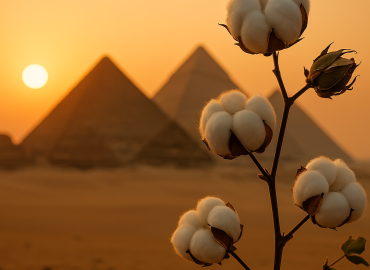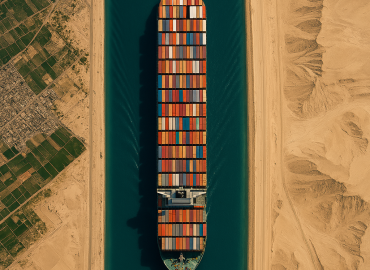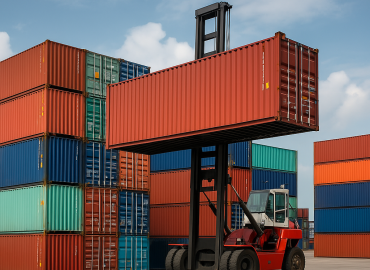Egypt & Textiles: A Strategic Hub for Global Sourcing
Why the World Is Turning to Egypt for High-Quality, Duty-Free Textile Manufacturing
In the dynamic world of textile manufacturing, global buyers are increasingly seeking sourcing destinations that balance quality, compliance, cost-efficiency, and logistical advantage. One country that is rapidly gaining recognition across all these dimensions is Egypt.
With a rich heritage in cotton cultivation and an expanding industrial infrastructure, Egypt has emerged as a critical textile hub bridging Europe, Asia, and Africa. Add to this a unique combination of duty-free trade agreements, a skilled workforce, and growing compliance with international standards, and the country is becoming an indispensable part of the global textile value chain.
At Nur Nil, we are proud to operate from Egypt—a country whose textile relevance is not just historical, but increasingly strategic.
A Historical Legacy, Reinvented for the Future
Egypt’s association with textiles dates back thousands of years. Ancient Egyptian linen, woven from the flax plant, was prized throughout the Mediterranean. But Egypt’s modern textile power comes from long-staple and extra-long-staple cotton, known globally as Egyptian Cotton™—celebrated for its exceptional softness, strength, and durability.
Today, Egypt is reinventing its legacy by expanding into vertically integrated textile manufacturing, producing not only raw materials but also value-added products like finished towels, garments, and hospitality textiles, all in compliance with modern environmental and social standards.
Why Egypt Matters to Global Buyers
Strategic Geographical Position
Egypt sits at the crossroads of Africa, the Middle East, and Europe. With easy access to the Suez Canal, it enables fast and cost-effective logistics to global markets. From our factories in Beni Suef and Sadat, Nur Nil can reach:
Europe in under 10 days by sea
The Middle East in under 5 days
North America in 3–4 weeks, with expedited airfreight options
This logistics advantage is amplified by Egypt’s Free Zones and Industrial Development Zones, which support export-oriented operations with competitive taxation and customs benefits.
Duty-Free Access Through Trade Agreements
Egypt’s network of preferential trade agreements makes it one of the most attractive sourcing destinations for duty-exempt textile imports.
QIZ (Qualifying Industrial Zones)
Perhaps the most powerful agreement for U.S. buyers, QIZ allows Egyptian-made textile goods to enter the United States duty-free, provided they include a small percentage of Israeli content (typically 10.5%). This agreement enables Egyptian manufacturers to compete directly with Asia by eliminating the 16–32% import duty otherwise levied on towels, garments, and home textiles.
EU-Egypt Association Agreement
Signed in 2004, this agreement provides duty-free access for Egyptian goods to all 27 EU member states. For European importers, this significantly reduces cost and administrative burden, especially when combined with Egypt’s compliance to REACH, OEKO-TEX®, and ICS standards.
COMESA & Pan-Arab Free Trade Agreement
These regional trade frameworks allow Egypt to export duty-free to over 20 African and Arab countries, including Saudi Arabia, the UAE, Kenya, and Morocco—facilitating seamless intra-regional supply chain development.
Skilled & Cost-Effective Workforce
Egypt boasts a young, highly trainable labor force, with strong government investment in technical training programs. The cost of labor remains competitive, especially when compared to Turkey and Eastern Europe, while maintaining higher levels of craftsmanship than many Asian suppliers.
Sustainability in Focus
Egypt is taking serious steps toward sustainable textile production, with increased adoption of:
- Closed-loop water systems
- ZDHC-aligned dyehouses
- OEKO-TEX® and GOTS certifications
- Solar-powered manufacturing facilities
At Nur Nil, we are actively progressing toward ZDHC wastewater compliance, expanding our use of bamboo cotton, and investing in low-impact chemical processes in partnership with suppliers like DyStar®.
What Buyers Can Expect From Egyptian Suppliers Like Nur Nil
High-volume capacity
Customized product development
Global certifications
Responsive sampling programs and private label support
Shorter lead times and reduced freight costs for U.S. and EU importers
Why Global Brands Are Choosing Egypt in 2025 and Beyond
Brands focused on compliance, ESG, and traceability want sourcing partners aligned with their own values.
Disruptions in Asian supply chains have made geographical diversification essential.
Egypt offers a rare combination of regulatory access, skilled labor, and sustainability potential—without the trade barriers present in other regions.
At Nur Nil, we’re not just based in Egypt—we’re investing in its future. From local employment and training to water-saving dyeing systems, we are committed to leading the country’s emergence as a center of excellence in sustainable textile manufacturing.
Partner With Nur Nil: Your Gateway to Egypt’s Textile Advantage
Whether you are a hospitality brand looking for durable, OEKO-TEX®-certified towels, a retailer building a private label collection, or a sourcing executive seeking duty-free market access, Egypt—and Nur Nil—offer unmatched strategic advantages.




